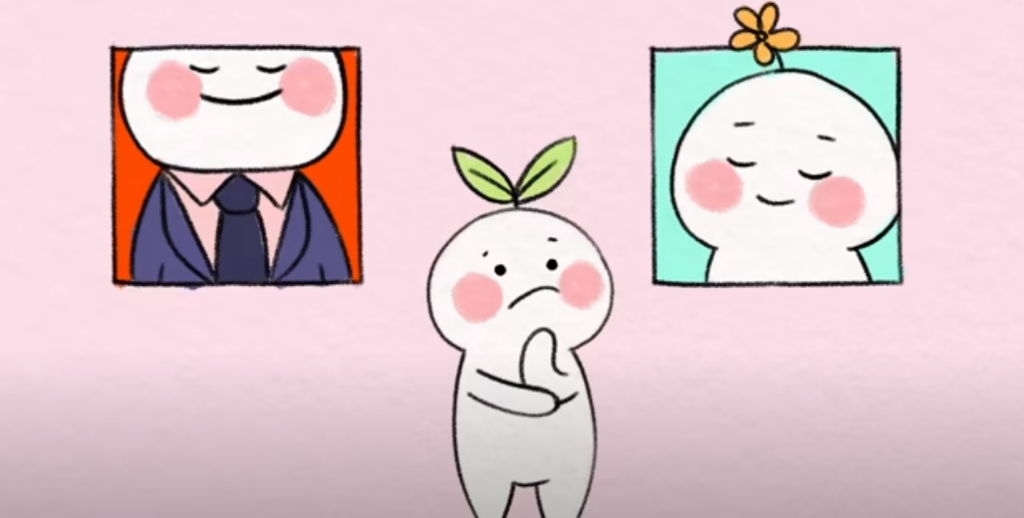Why You Should Stop Relying on Others for Your Happiness
In a world where we are constantly bombarded with messages about finding happiness through external means, it is easy to fall into the trap of relying on others. Whether it’s seeking validation from friends, seeking love to fill a void, or relying on social media to boost our self-esteem, the belief that someone else holds the key to our happiness can be detrimental to our well-being.
What Does It Mean When You Rely on Others
When you rely on others, it means that you depend on them for support, help, or certain needs. This dependence can manifest itself in various aspects of life, such as emotional support, affirmation, material resources, or decision-making.
Dependence on others implies that you consider their actions, presence, or contributions necessary for your well-being or the realization of certain goals or desires. This can range from seeking advice or guidance to relying on someone for financial support or emotional stability.
However, over-reliance on others for various aspects of your life can sometimes lead to a loss of independence and hinder personal growth.
Why It’s Not Safe to Rely Entirely on Others
By relying on others for happiness, we place our sense of well-being in the hands of external factors that we have little control over. People change, circumstances change, and relationships evolve. By relying on others for happiness, we relinquish control over our own emotional state, leaving ourselves vulnerable to disappointment and instability.

If an adult completely “shifts” responsibility for his or her life and important decisions to others, this results in the loss of important components of a fulfilling life:
- Self-Discovery and Personal Growth: Finding happiness within ourselves allows us to embark on a journey of self-discovery and personal growth. When we separate our happiness from external validation, we can focus on understanding our own desires, values, and passions. This self-awareness allows us to make choices that align with our authentic self and promotes feelings of satisfaction and fulfillment;
- Emotional Independence: Relying on others for happiness creates an emotional dependency that can be burdensome for both parties. When we expect others to meet our emotional needs, we place unfair expectations on them, which can lead to relationship strain. By taking responsibility for our own happiness, we become emotionally independent and able to create healthy connections based on mutual support and genuine care;
- Increasing resilience: Life is full of ups and downs, and if we rely only on others for our happiness, we become more susceptible to emotional upheaval. When we cultivate happiness from within, we develop resilience and the ability to recover from setbacks. By building on our own resources, coping mechanisms, and inner strength, we become better equipped to deal with the challenges that life throws at us;
- Authenticity and self-confidence: When we rely on others for our happiness, we tend to mold ourselves to their expectations and desires. This compromises our authenticity and diminishes our self-confidence. By finding happiness within ourselves, we embrace our unique qualities, rejoice in our accomplishments, and strengthen our sense of self-worth. This genuine self-confidence attracts positive energy and fosters healthy relationships based on acceptance and respect;
- Sustained happiness: External sources of happiness, such as material possessions or temporary pleasures, bring fleeting satisfaction. Relying on others for happiness is also unsustainable because it places responsibility for our emotional well-being on someone else. However, when we cultivate happiness from within, we tap into a source that is eternal and independent of external circumstances. Real and lasting happiness becomes a state of mind, not a fleeting emotion;
- Empowerment and Freedom: Dependence on others for happiness often leads to a state of powerlessness in which we feel at the mercy of external forces. When we shift our focus inward, we regain control of our emotional state and regain our power. We become the architects of our own happiness and no longer depend on the approval or actions of others. This newfound freedom allows us to live authentically and pursue our passions without restriction.
As a result, by relying on others for happiness, we place our well-being in the hands of external factors that are beyond our control. By turning our attention inside ourselves, we embark on a journey of self-discovery, emotional independence, and personal growth.
Cultivating happiness from within empowers us, increases our resilience, and allows us to achieve sustained satisfaction. So, let go of the illusion that someone else holds the key to your happiness, and begin to embrace the incredible power within yourself to create a life of true and lasting joy.
Degrees of Emotional Dependence on Other People
| Degree of Emotional Dependence | Description |
|---|---|
| High Emotional Dependence | Individuals with high emotional dependence heavily rely on others for their emotional well-being. They seek constant validation, reassurance, and support from others to feel secure and happy. They may struggle to make decisions independently and may experience anxiety or insecurity when they are not in close proximity to their primary sources of support. |
| Moderate Emotional Dependence | Individuals with moderate emotional dependence rely on others to some extent for their emotional needs. They value the input and support of others but also have a certain level of self-reliance. While they appreciate the company and emotional connection with others, they can still function and find happiness to some degree on their own. They strike a balance between seeking support from others and maintaining a sense of independence. |
| Low Emotional Dependence | Individuals with low emotional dependence have developed a strong sense of self and emotional autonomy. They are self-reliant and primarily find happiness, fulfillment, and emotional stability within themselves. While they appreciate the companionship and support of others, they do not rely heavily on them for their emotional well-being. They are comfortable being alone and have developed coping mechanisms and internal resources to navigate challenges and find happiness independently. |
It is important to note that these degrees of emotional dependence can vary in different situations and relationships. In addition, emotional dependence is a continuum, and people can be at different points on this spectrum depending on various factors, including their personality, past experiences, and current circumstances. The goal is to strive for a healthy balance between seeking support from others and maintaining one’s own emotional well-being.
How Do I Stop Relying on Someone?

Ending your dependence on someone can be a gradual process, but here are some steps you can take to strengthen your independence and reduce your dependence:
- Identify the source of dependence: Think about specific areas or aspects in which you rely heavily on that person. Is it emotional support, decision-making, financial help, or something else? Understanding the nature of your addiction will help you identify areas where something needs to change;
- Set personal goals: Identify your personal goals and aspirations. Determine what you want to accomplish, both in terms of personal growth and in the specific area in which you are dependent on someone. Having clear goals can motivate you to take steps toward independence;
- Develop self-confidence: Nurture self-confidence by recognizing your strengths, opportunities, and accomplishments. Participate in activities and challenges that help you build confidence in your abilities. Focus on personal growth and celebrate your accomplishments along the way;
- Seek support from others: While the goal is to reduce dependence on one person, that doesn’t mean you can’t seek support from others. Expand your support network and connect with people who can provide guidance, advice, and encouragement. Diversifying your support system will help you lean on more than one person;
- Take small steps toward independence: Start by taking small steps toward independence in an area where you depend on someone. Gradually take more responsibility and decision-making authority. This will help build your confidence and sense of self-sufficiency;
- Develop new skills and knowledge: Determine what skills and knowledge you need to become more independent. Invest time and effort into learning and acquiring these skills. This can be anything from financial literacy to emotional regulation techniques or practical life skills;
- Practice self-care and self-compassion: Enhance your well-being by practicing self-care and self-compassion. Prioritize your physical, emotional, and mental health. Treat yourself with kindness and understanding as you go about reducing dependence on someone;
- Set boundaries: Set healthy boundaries in your relationships. Be clear about your needs, expectations, and limitations. Learn to say “no” when necessary and assert your autonomy – this will help create a healthier dynamic;
- Embrace solitude: Spend time alone and embrace solitude as an opportunity for introspection and self-discovery. Engage in activities that you enjoy being alone and learn to appreciate your own company. This can strengthen your self-esteem and reduce your need for constant affirmation from outside;
Remember that overcoming dependence on someone is a personal journey and can take time and effort. Be patient with yourself and celebrate each step toward greater independence. Accepting your own abilities and cultivating self-confidence can lead to personal growth, increased self-confidence, and empowerment.
13 Ways to Stop Relying on Others for Happiness
Remember that giving up the habit of relying on others for happiness takes time and effort. Be patient with yourself and celebrate the progress you are making along the way. Accepting your own happiness and cultivating a sense of self-confidence will lead to a more fulfilling and authentic life.
How to stop being dependent on others:
- Develop self-awareness: Take time for self-reflection and introspection. Examine your own desires, values, and cravings. Understand what truly brings you joy and satisfaction. This introspection will help you make choices that align with your authentic self and lead to greater personal satisfaction;
- Practice self-care: Give priority to self-care activities that promote your physical, mental, and emotional well-being. These can be activities such as exercise, eating right, getting enough rest, hobbies, relaxation techniques, and setting boundaries to protect your energy and emotional health;
- Set goals and engage in personal growth: Determine your goals and aspirations, both short-term and long-term. Break them down into doable steps and work toward achieving them. Personal growth and moving toward your goals can bring a sense of satisfaction and purpose that is independent of others;
- Develop compassion for yourself: Treat yourself with kindness and understanding. Demonstrate compassion for yourself by recognizing and accepting your flaws and imperfections. Cultivate a positive inner dialogue and practice self-forgiveness. Remember that you are human and deserve love and kindness just like everyone else;
- Create a support network: Surround yourself with positive, supportive people who uplift and inspire you. Seek friendships and relationships based on mutual respect, understanding, and support. Having a strong support network can provide a sense of belonging and fulfillment, as well as promote independence;
- Engage in hobbies and passions: Explore activities and hobbies that bring you joy and ignite your passion. Invest time and energy in pursuing these interests. Engaging in activities that you genuinely enjoy can create a sense of satisfaction and happiness that does not depend on the participation of others;
- Practice mindfulness and gratitude: Incorporate mindfulness into your daily life by staying in the present moment and being aware of your thoughts and feelings. Practice gratitude by regularly recognizing and appreciating the positive aspects of your life. These practices will help you shift your focus to the present moment and find happiness within yourself;
- Develop emotional resilience: Emotional resilience enables you to overcome difficulties and setbacks with strength and adaptability. Learn healthy coping mechanisms for stress, such as stress management techniques, problem-solving skills, and effective communication. Cultivate a positive mindset and develop the ability to overcome difficulties, which will contribute to your emotional well-being;
- Seek professional help if needed: If you find it difficult to kick the habit of relying on others for happiness, seek help from a therapist or counselor. They can provide guidance, support, and tools to help you deal with underlying issues and develop healthier patterns of relationship with others and with yourself;
- Strengthen your independence: Take responsibility for your own happiness and well-being. Make decisions based on your own values, desires, and aspirations rather than seeking constant validation or approval from others. Believe in your ability to navigate your own life and recognize that you have the power to create your own happiness;
- Practice self-assessment: Instead of relying on the approval of others, learn to evaluate yourself. Recognize your own worth, celebrate your accomplishments, and recognize your strengths and capabilities. Create a positive self-image and learn to trust your own judgment and intuition;
- Embrace loneliness: Spend time alone and embrace loneliness as an opportunity for introspection and self-discovery. Enjoy your company and use this time to recuperate, reflect on your thoughts and feelings, and connect more deeply with yourself. Solitude will help you build self-esteem and develop self-confidence;
- Shift your focus to contribution: Instead of looking only to others for happiness, shift your focus to what you can contribute to the world around you. Participate in acts of kindness, support others in their journeys, and find satisfaction in making a positive difference in the lives of others. By focusing on contribution, you can find a deeper sense of purpose and satisfaction that does not depend on external approval or recognition.
Remember that these practices require constant effort and introspection. Be patient and compassionate with yourself as you work toward becoming more independent and self-reliant. Every step you take to rely less on others for happiness brings you closer to a more authentic and fulfilling life.
Is It Healthy to Rely on Someone?

Dependence on someone can be healthy and somewhat natural. Humans are social creatures, and we often rely on others for support, connection, and cooperation. It is important to have healthy and balanced relationships in which there is mutual support and interdependence.
Here are some considerations for healthy dependence on others:
- Emotional support: Seeking emotional support from trusted individuals, such as friends, family, or therapists, can be beneficial to our mental and emotional well-being. Sharing our feelings and experiences with others can provide comfort, validation, and perspective;
- Social connection: Creating and maintaining healthy relationships is critical to our overall well-being. We rely on others for social connection, communication, and a sense of belonging. Healthy relationships contribute to our happiness and provide a support system during difficult times;
- Collaboration and interaction: Collaboration and interaction are essential in various areas of life, including work, education, and personal projects. We often rely on the experiences, skills, and contributions of others to achieve common goals and enhance our collective efforts.
However, it is important to strike a balance and avoid over-dependence on others, which can become unhealthy or co-dependent. Here are some points to consider:
- Independence and autonomy: It is important to cultivate a sense of independence and autonomy. The ability to make decisions, solve problems, and take care of yourself promotes personal growth and resilience;
- Boundaries: Healthy relationships are built on mutual respect and boundaries. It is important to recognize and respect each other’s boundaries, maintaining a balance between relying on others and maintaining individuality;
- Personal Responsibility: Taking responsibility for our own happiness, well-being, and actions is crucial. While we may seek support from others, it is important to remember that the ultimate responsibility for our own lives lies with ourselves.
Developing self-esteem, self-confidence, and self-efficacy enables us to rely on ourselves in healthy relationships. By recognizing our strengths and abilities, we can overcome life’s challenges with greater resilience.
Conclusion
In general, a healthy reliance on others is a natural and important aspect of human connection and cooperation. Finding support, social connections, and cooperation can make a positive contribution to our lives. However, it is important to maintain balance, cultivate independence, and take personal responsibility for our own happiness and well-being.
